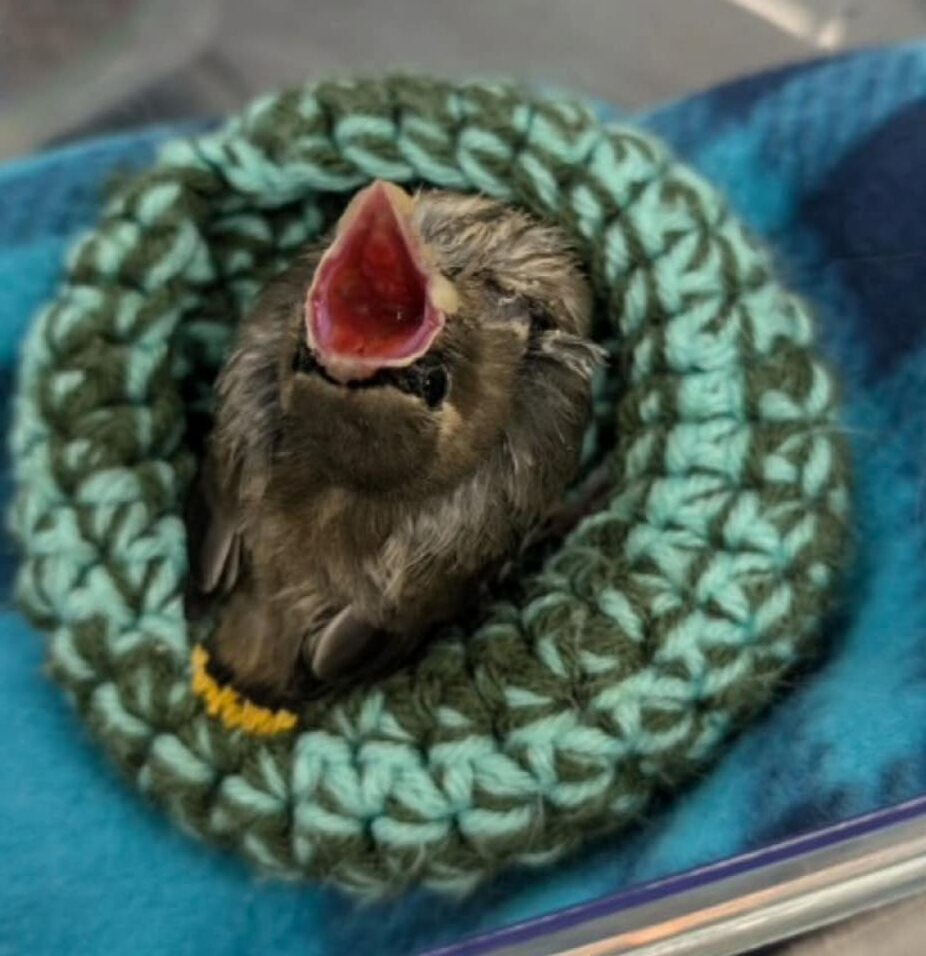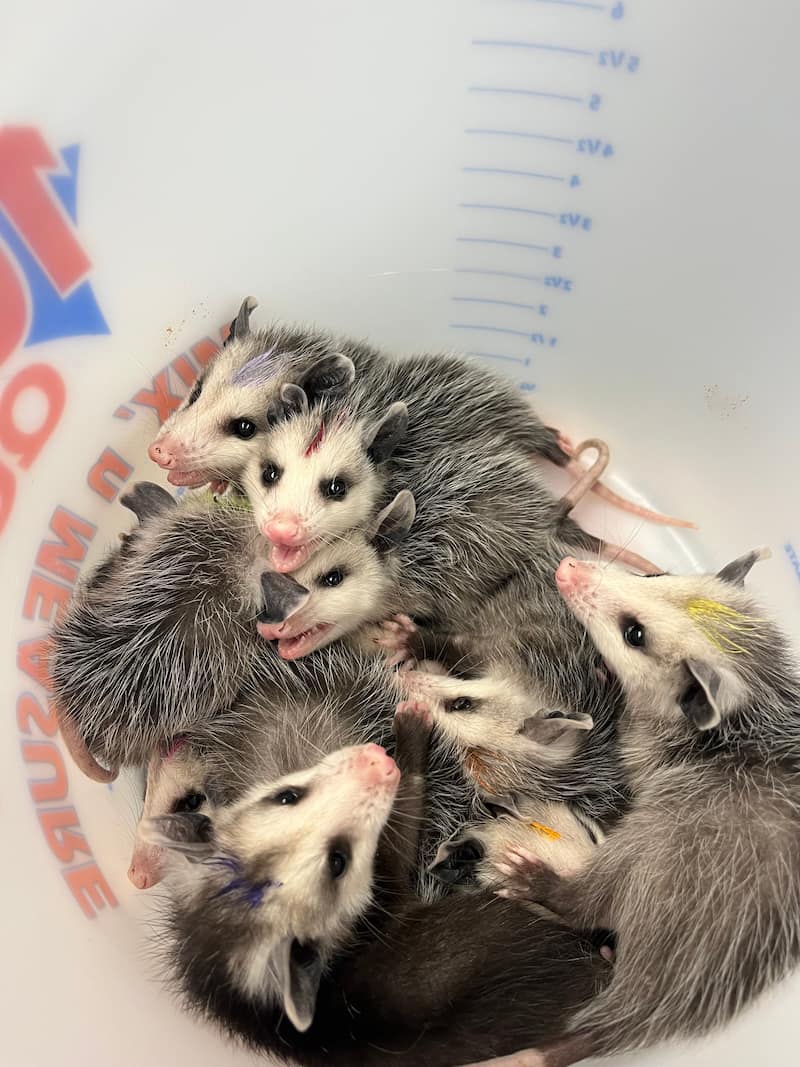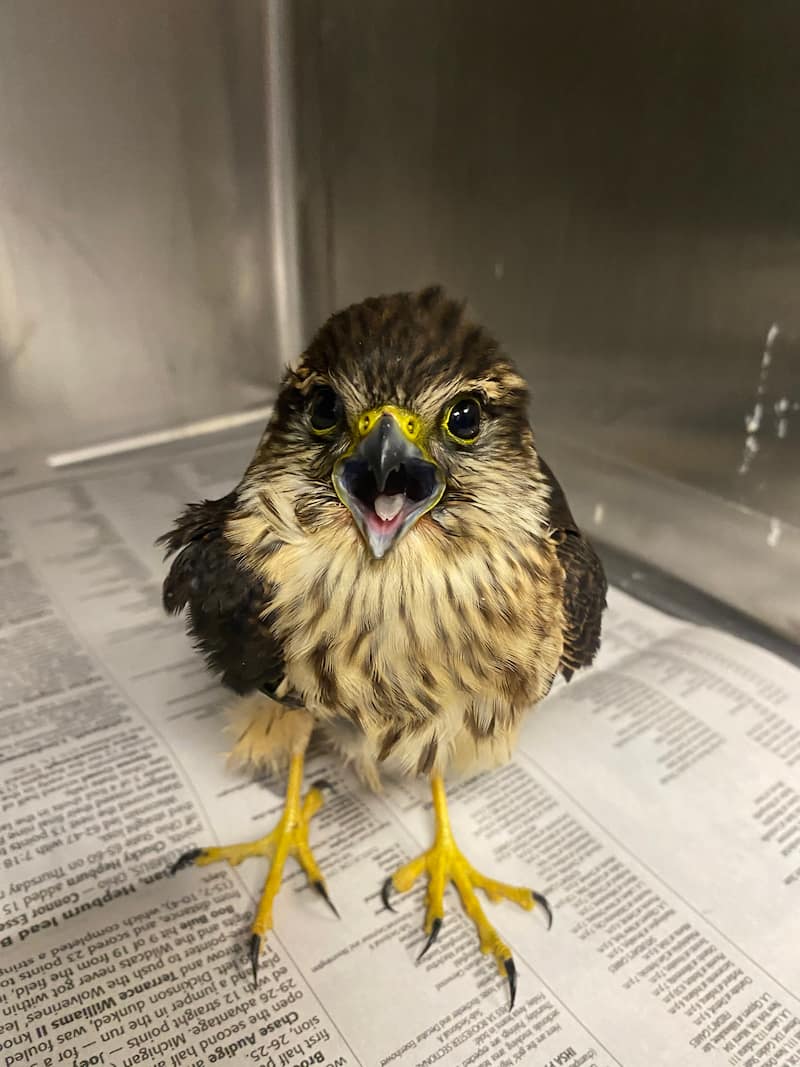
At the end of June, we celebrated having our Virginia opossum ambassador, Patty, for one year! Over the course of her first year with us, she went through a complete transformation. Her journey with us started when she was surrendered to the Wildlife Medical Clinic (WMC) to receive life-saving treatment. At that time, Dr. Sander and a team of students took Patty to surgery to remove the infected tissues in her reproductive tract. This surgery was very complex and intensive and Patty was monitored closely by our volunteers and veterinarians throughout her recovery. Once she had fully healed, Patty’s weight loss journey began! She came to the WMC weighing about 15 pounds, which is almost double what she should have been. Her obesity led to many problems for her including bone, joint, and liver issues. We were lucky to have the guidance of the Veterinary Teaching Hospital’s rehabilitation program to help Patty lose the extra weight and gain some much-needed muscle. In addition to regular exercise, our ambassador animal care team carefully crafted a well-balanced diet for her and she began to thrive (and lose weight)!


Patty eventually graduated from being a patient in the Wildlife Medical Clinic to an ambassador representative, complete with her own room in our Wildlife Ambassador Residence! The space was crafted with her needs in mind, including ramps, shelves, and even a cat tree to climb! Patty’s next journey included learning to walk on a harness and leash with the student volunteers. She now takes daily walks for both enrichment and to maintain her muscle! She seems to enjoys sniffing in the dirt and trying to catch spiders along the building edges. Very much a docile opossum, Patty is unphased by any loud noises or people that she encounters on her walks! One of her favorite foods is kale and other leafy greens, as she uses her hands to grab the pieces and crunch away! Her caretakers create many different obstacle courses and puzzles for her to solve to get her food which is both mentally and physically stimulating (for everyone)! Most days, you can find her napping in her enclosure underneath blankets or in her bed until it is time for her daily walk. Patty is quite intelligent and has learned a lot while we have had her. She will sit calmly for nail trims or blood draws, and even climbs onto the scale so we can regularly monitor her weight. She is rewarded for participating in her health care with some yummy snacks and, of course, some words of encouragement.



At only two years old, Patty is already considered geriatric for her species. Virginia opossums have a life span of only 2-4 years. As such, we continue to monitor her health carefully and tweak her care with her changing needs. Patty has stolen the hearts of many of those who have had the opportunity to work with her and has taught many others about marsupial husbandry, health care and management!


While Patty’s story is one that ends well, our hope for all of our patients is to return them to the wild. This was not possible in Patty’s case, as she had been taken from the wild as a joey by a well-meaning community member and kept as a pet for a year. This is illegal in the state of Illinois and is the reason for her docile temperament. While her tolerance for humans has made her a great ambassador animal, Patty did not have the chance to be in the wild where she belongs. Most animals with a history like Patty’s do not have such happy endings. For this reason, the Wildlife Medical Clinic discourages non-licensed members of the public to raise, rehabilitate, or keep wild animals. If you find an orphaned, sick, or injured wild animal, we encourage you to reach out to the WMC or another local licensed wildlife rehabilitator for guidance on how to best help.

Written by Danielle Money, class of 2024.




